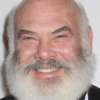Andrew Weil

Andrew Weil
Andrew Weil—broadly referred by this name preceded by "Dr.", or simply as Dr. Weil—is an American physician, author, spokesperson, and broadly described "guru" for holistic health and integrative medicine, whose names also constitute an emerging brand of healthcare services and products in these fields...
NationalityAmerican
ProfessionTeacher
Date of Birth8 June 1942
CityPhiladelphia, PA
CountryUnited States of America
independent thinking contentment
I think instead [of happiness] we should be working for contentment... an inner sense of fulfillment that's relatively independent of external circumstances.
thinking people meals
When people are told to 'eat many small meals,' what they may actually hear is 'eat all the time,' making them likely to respond with some degree of compulsive overeating. It's no coincidence, I think, that obesity rates began rising rapidly in the 1980s more or less in tandem with this widespread endorsement of more frequent meals.
children emotional thinking
The more people have, the less content they seem to be. In America, the cultural expectation that we're to be happy all the time and our children are to be happy all the time is toxic, and I think that really gets in the way of emotional well-being.
technology thinking two
I think integrative medicine, something I've pioneered, is the way of the future. Its great promise is that it can reduce healthcare costs by shifting the whole focus of healthcare away from disease management to health promotion and prevention. They can do that two ways: first, by focusing attention on lifestyle medicine, which is very deficient. And second, by bringing into the mainstream treatments that are lower cost because they are not dependent on expensive technology.
emotional thinking practice
I do not claim to have attained optimum emotional well-being. Actually, I think that may be a lifetime goal. For me it’s an ongoing process that requires awareness, knowledge, and practice. I do know what good emotional health feels like, and that motivates me to keep at the practice.
running thinking challenges
Fitting a walk into a busy life can be challenging, so I suggest walking rather driving to work or to run errands as often as you can - in other words, think of walking as alternative transportation.
stress thinking may
I don't think you can live without stress; I think the human life is stressful, and it probably always has been, although the forms of stress may change from culture to culture, and from time to time.
jobs thinking controversial
I've always been called "controversial." I think if I were not controversial I wouldn't be doing my job.
stress reality thinking
I tried to change the conventional paradigm, for example, by insisting on the reality of mind-body interaction, by stressing the importance of natural therapies, by focusing attention on lifestyle issues, by looking at worthwhile aspects of alternative medicine. Many people have been threatened by that. Doctors especially tend to think that they know everything about the human body, and don't realize that medical education has really omitted many very important subjects.
psychologist harvard skinner
As an undergraduate at Harvard in the 1960s, I was fascinated by my visits to psychologist B.F. Skinner's laboratory.
views benefits planets
In my view, the best gift is one that benefits both the receiver and the planet.
medicine disease diagnosis
I'm not against high-tech medicine. It has a secure place in the diagnosis and treatment of serious disease.
support care health-care
I fully support a national health care program for the U.S.
decision humans survived
Human beings have survived for millennia because most of us make good decisions about our health most of the time.